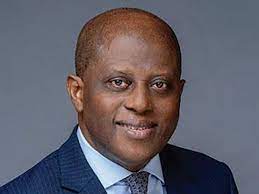By Shehu Bashir Esq
I am happy to observe that the Central Bank of Nigeria, CBN, has started to take control and do the needful to rein in the criminals and saboteurs and forex speculators. I am particularly happy to note that some of the “radical” suggestions I made in my previous notes are now being strategically implemented and even improved upon. The new policy of the CBN which is attached hereunder is the right step in the right direction. All we need now is continuous enforcement without any iota of compromise.
However you look at it, it is not correct that we allow a few manipulators and speculators take charge of our legitimate forex market. Demolishing all illegal stalls (online and offline ) used for illegal forex market is good, moving forward. I can attest that the Zone 4 is now given a clean shave, just like NCC has been directed to block all illegal websites being used for forex speculation. Therefore, we can continue other strategic policies implementation including high tech control of forex manipulation that is usually done through crypto and others. Gradually, we will get there
The next radical step I expect the CBN take is to call the bluff of the World Bank and International Monetary Fund against their manipulative advice to float our naira without considering the peculiarity of our markets and marketers. Nigeria economy has everything for us to survive without taking any exploitative capitalistic advice from the IMF and WB. It’s all about natural resources which we have in abundance, we only have to harness them and earn more forex. When we control the physical forex liquid in circulation and stop all criminal round tripping, we will see a sanitized system.
I will not shy away from the fact that Abacha called the bluff of these global capitalists, pegged naira-to-dollar exchange rate for years and Nigeria did not fall. On the contrary, we did better.
Malaysia and Saudi Arabia will never float their currencies to give any advantage to the dollar, why are we doing it to please the West. So, CBN should take further steps to stop the blackmail by IMF and World Bank, even America and UK are still officially controlling their forex. What are we talking about about?
Below are the key points from CBN’s reversed regulatory and supervisory guidelines for bureau de change operations in Nigeria as compiled by Mislaw.
1● Non-Eligible Promoters: Certain entities like banks, government agencies, NGOs etc are not allowed to have ownership stake in BDCs.
2● Permissible Activities: BDCs can buy and sell foreign currencies, issue prepaid cards, serve as cash points for money transfer operators etc. They cannot take deposits, grant loans, deal in gold or engage in capital market activities.
3● Sources of Foreign Currencies: BDCs can source forex from authorized dealers, travellers, hotels, embassies etc. Large transactions above $10,000 require declaration of source.
4●Sale of Foreign Currencies: BDCs can sell forex for travel, medical bills, school fees etc up to specified limits per customer annually. At least 75 per cent of sale must be via transfer, 25 per cent can be cash.
5● Categories of BDCs: There are 2 tiers of BDCs – Tier 1 with national presence, branches and franchises; Tier 2 restricted to 1 state with max 3 locations.
6●Financial Requirements: Minimum capital of N2 billion for Tier 1 and N500 million for Tier 2. Other fees and deposits specified.
7● Licensing Process: Two stage process – Approval in Principle and Final Licence, each with specified document requirements.
8● Corporate Governance: Board composition, assessment of propriety, fitness requirements for directors and senior management specified.
9● Operations: Must verify customer identity, keep transaction records, connect to CBN systems, display rates clearly etc.
10●Supervision: Specified regulatory returns must be rendered, records available for inspection, compliance with guidelines required.
11● Franchising Standards: Standards specified for Tier 1 BDCs appointing franchises regarding policy, monitoring, branding etc.
13● Prudential Requirements: Specified limits on open position, fixed assets, borrowings, dividend payment etc.
14● AML/CFT Requirements: Must comply with AML/CFT regulations on policies, monitoring, reporting etc.
15●Penalties: Non-compliance may lead to sanctions including revocation of licence.
NOTE: In summary, the guidelines aim to regulate all aspects of BDC operations from licensing, governance, sources of funds, forex transactions, reporting, supervision etc in line with Central Bank objectives.
*ADDENDUM*
What is now required is for CBN to strictly and stringently monitor commercial banks and their CEOs and should not hesitate to use the biggest hammer to penalize anyone who flouts these regulations. If we can maintain these and improve on them, enforcing without compromise, we will see better market forces and an improved economy.
God bless the Federal Republic of Nigeria.


